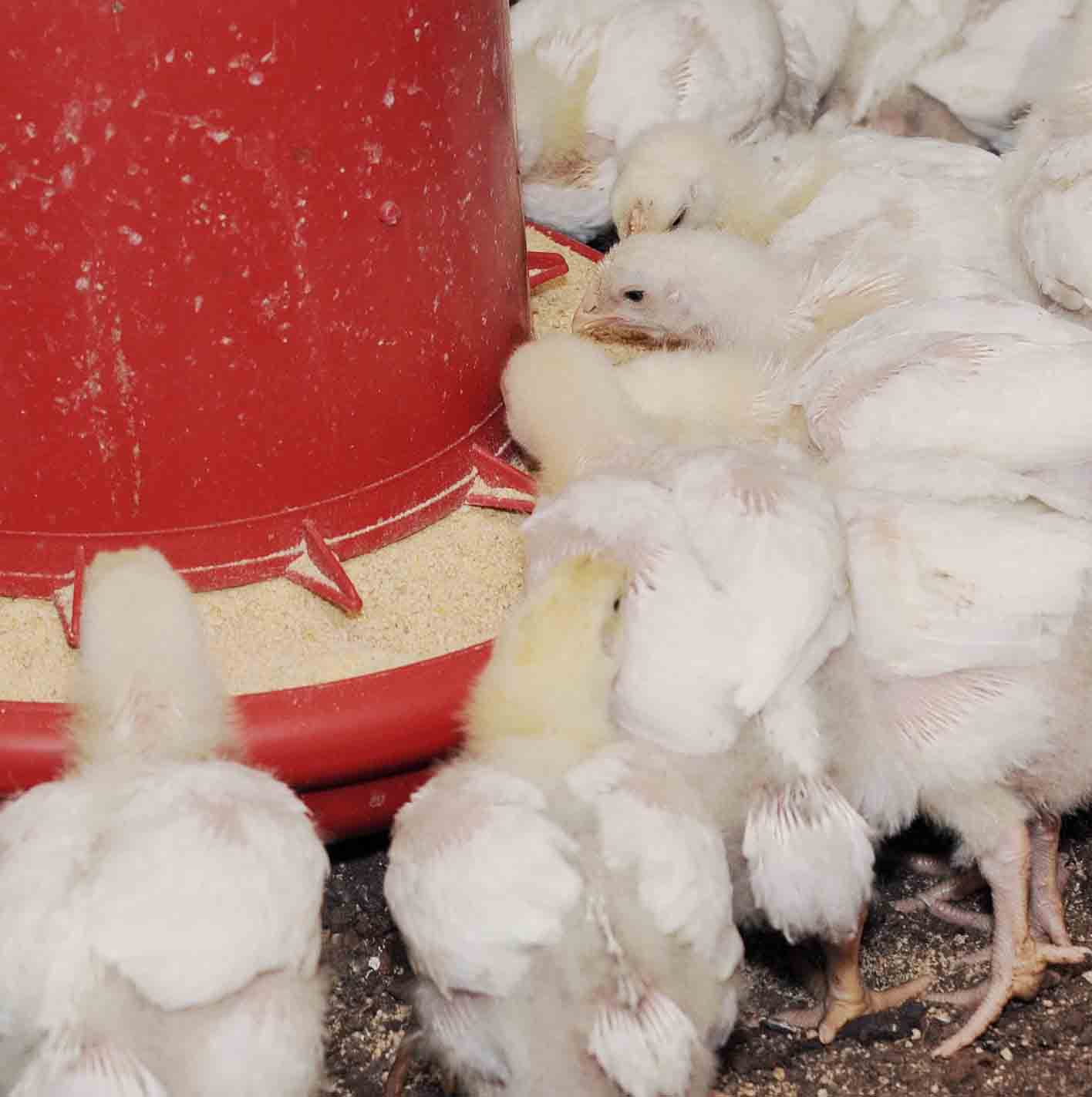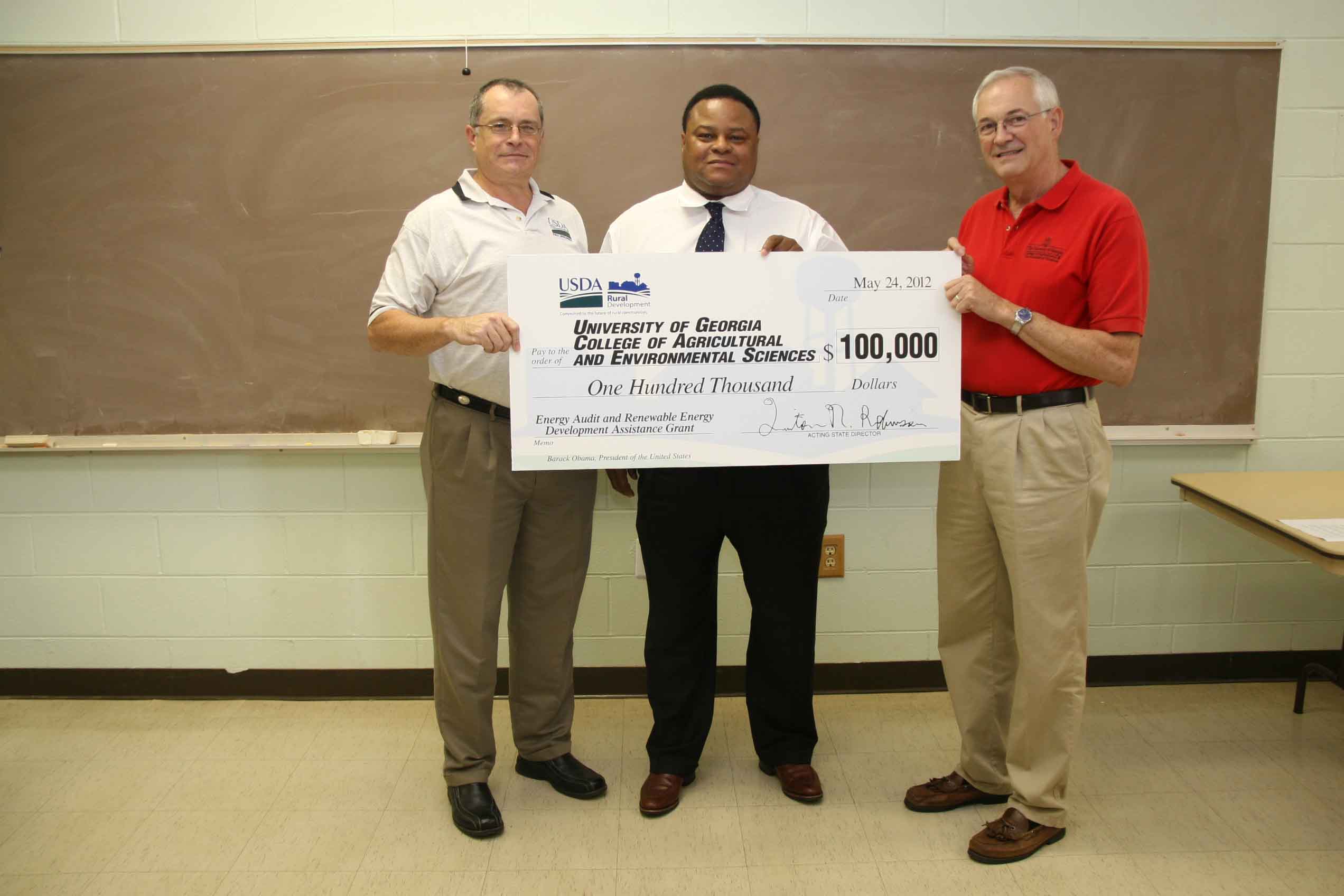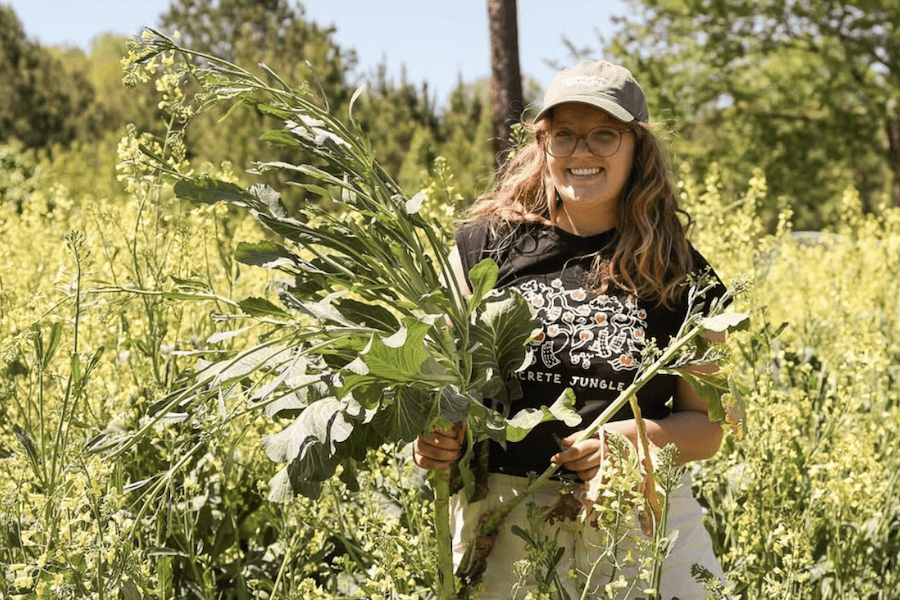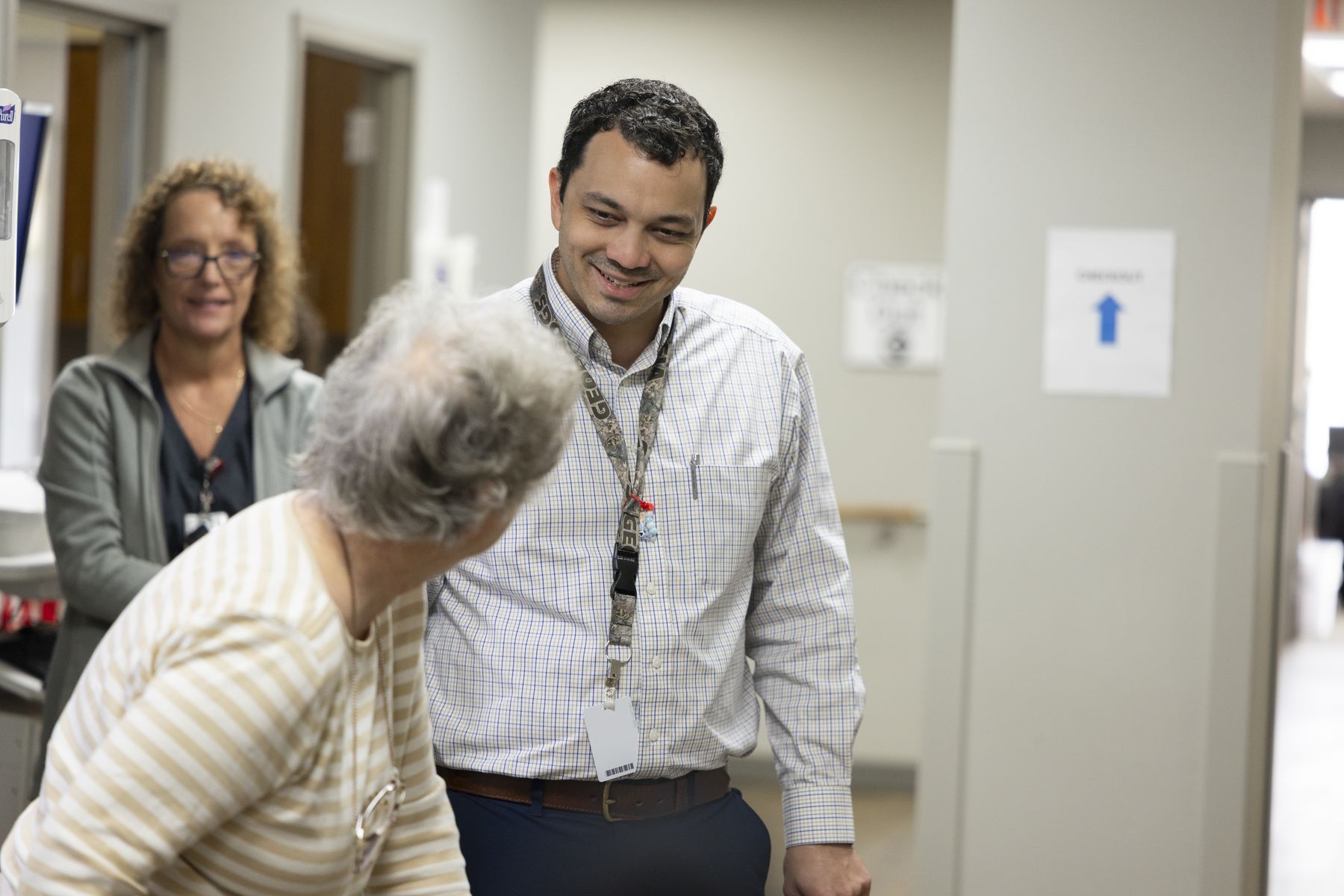The practices that can help us save energy in our own homes, like sealing leaks, insulating and updating cooling systems and replacing light bulbs, are also being used to make Georgia’s prolific poultry industry more efficient — one chicken house at a time.
For the last five years, a team of engineers led by John Worley, an associate professor of engineering with the University of Georgia College of Agricultural and Environmental Sciences, has been helping chicken farmers update their broiler houses to make them run more efficiently.
USDA presented Worley with a $100,000 grant on May 24 to continue Extension efforts to advise farmers how make their operations more efficient.
“There’s just tremendous potential there, so we’ve tried to fill that need (for energy efficiency,” Worley said. “There are about 12,000 chicken houses in Georgia.”
Over the past four years, he and his team have provided audits for almost 200 farms with over 1,000 poultry houses.
Estimated electrical savings were more than 3,000 megawatt hours/year (enough to power more than 200,000 typical homes) and more than 1 million gallons of propane gas. These changes should save participating farmers about $2.7 million annually in energy costs.
“(Farmers) can then take the money they were going to use towards the energy bill and put it back into their businesses – maybe use it to hire a few more people,” said Quinton Robinson, director of USDA Rural Development for Georgia.
Grant money available for willing farmers
As part of USDA’s Rural Energy for America Grant program, farmers can receive 25 percent of the funding they need to help make their farms more energy efficient. To apply, they need a certified energy audit of their farms, and that’s where Worley’s team comes in.
They perform those energy audits and prepare an inventory of needed upgrades and the amount of energy each should save. The farmer pays $100 for the service, which is much less expensive than hiring a private engineering firm.
The auditing process assures both USDA and the farmer that the improvements will save energy, and it also provides the auditors with an opportunity to discuss with the farmers any other worthwhile improvements.
So far Worley’s team has audited about 1,000 of the 12,000 broiler houses in the state.
New grant will fund another year of energy audits
The newest grant will allow Worley to audit about 50 more farms between now and June 30, 2013. Based on past projects completed after Worley’s team made their recommendation, these audits could save enough energy to power another 5,600 homes.
The USDA grants associated with these audits provide farmers with 25 percent of the funding needed to upgrade their facilities. They have to specify what projects they plan to tackle before they receive the money.
“These projects will pay for themselves over time, but it is hard to come up with the money to make that initial investment,” Worley said.
The cost of retrofitting a chicken house can cost anywhere from $5,000 to $100,000 depending on how old the house is and what needs to be done, Worley said.
Audits help farmers take small steps to greener farms
Not every farmer who has his farm audited chooses to finish the grant application process, but most do at least one project to increase the energy efficiency of their farms.
“I consider that a success of this grant because (the audit) stimulated people to go ahead and make the decision to do something,” Worley said. “All of these improvements will pay for themselves without any grant assistance, but if you can stimulate people to go ahead make a decision, then they will get done sooner.”
The effort to help farmers run more efficiently is a collaboration between several agencies, including UGA Cooperative Extension, the USDA, and representatives of the Resource Conservation and Development Councils.
Poultry farmers not the only ones going green
While poultry farmers in Georgia have used the energy efficiency grant program the most, grants are available to all farmers who get more than 50 percent of their income from farming.
Worley’s team has worked with dairies and row crop farmers to increase the efficiency of milking barns and irrigation systems, too.
In the future, they’d also like to work with farmers to develop renewable energy systems, like solar-powered irrigation pumps or manure digesters to produce cheap heat.
Any producer interested in taking advantage of the energy audit program through the UGA Extension or applying for a rural energy grant can contact their local county Extension agent or email Craig Scroggs or Al Burns at the USDA at craig.scroggs@ga.usda.gov or al.burns@ga.usda.gov.









